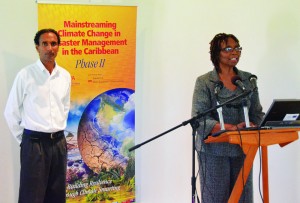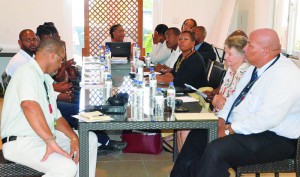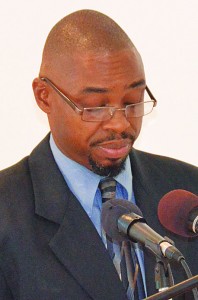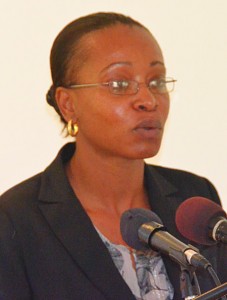

Participants in a two-day workshop at La Vue Conference Centre, South Hill, have been encouraged to develop a sense of awareness about climate change and disaster risk reduction.
The workshop was conducted by two facilitators from the Caribbean Disaster Emergency Management Agency (CDEMA) in collaboration with the Department of Disaster Management in Anguilla.
The workshop was entitled, “Mainstreaming Climate Change Adaptation into Disaster through the Climate Smarting of the Comprehensive Disaster Management Country Work Programme.”
Anguilla’s Director of Disaster Management, Melissa Meade, made the point that, by its location, the island was especially vulnerable to hazards. “The exacerbation of these hazards, due to climate change, such as strong hurricanes, and our great reliance on climate sensitive sectors, particularly tourism, is one reason for our focus on these areas,” she explained.
“Climate change and disaster risk reduction are terms persons have heard numerous times within the last ten years. Both areas are of key importance to ensuring that Anguilla has a viable future.”


Mr. Stanley Reid

Deputy Governor, Stanley Reid, who has responsibility for disaster management, delivered the main address. He was of the view that disaster risk education should be a significant part of disaster management in Anguilla, and he was grateful to CDEMA for funding the workshop.
Mr Reid’s address was mainly on climate change mitigation and disaster risk reduction. The full text of his address is published elsewhere in this edition of The Anguillian.
Mr Kenneth Hodge, Principal Assistant Secretary in the Ministry of Home Affairs, said that Anguilla was participating in a three-year project for Enhancing Capacity for Adaptation to Climate Change in the Caribbean UK Overseas Territories. The policy was approved by the Anguilla Executive Council in 2012; and funding for the project was provided by the UK Department for International Development and managed by the Caribbean Community Climate Change Centre.
“The overarching goal of this project is to build local capacity in the planning and implementation of climate adaptation mitigation measures within the context of national development planning processes,” Mr Hodge stated. “A key outcome of this project was the development of a Climate Change Policy for Anguilla.”
Mr Hodge said that the research associated with the project “will generate realistic, yet viable, options to transform Anguilla to a climate resilient, energy efficient and low carbon economy.”He added that this was “a key pillar of national efforts to achieve sustainable development.”
The objectives of the workshop were outlined as follows:
To develop an awareness of climate change and impacts at the national level including existing development challenges, vulnerabilities and future risks focusing on hydrometeorological hazards and events;
To identify existing and alternative adaptation options for disaster risk reduction nationally and sectorally and gaps in current capacities;
To prioritise and sequence viable adaptation options into entry points and actions that build on the current comprehensive disaster management country work programme framework for disaster risk reduction;
Through national stakeholder consultation and participation, integrate climate change considerations into a draft climate Smart Country Work Programme for Anguilla.







